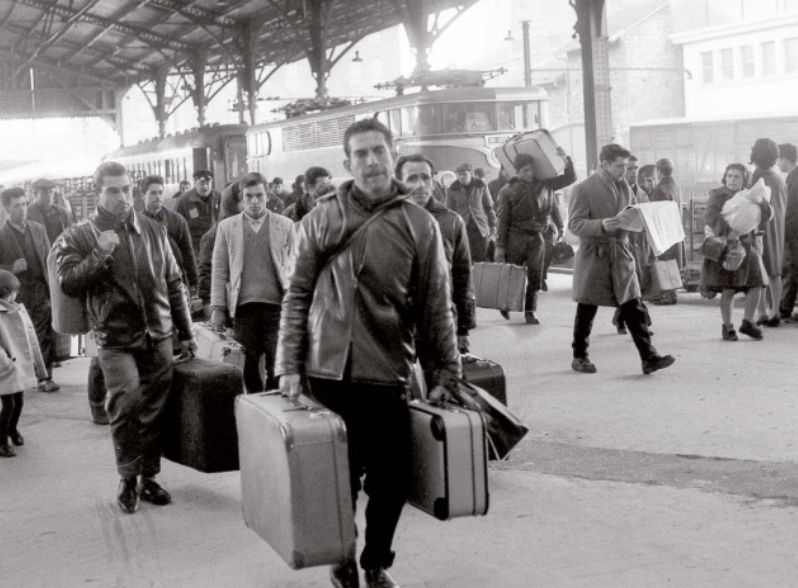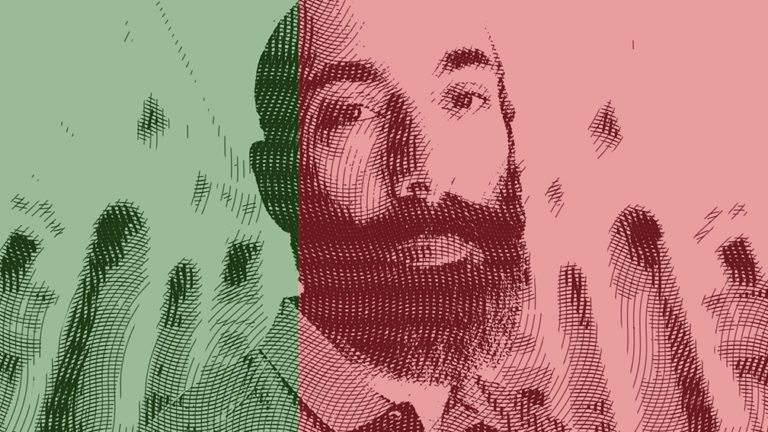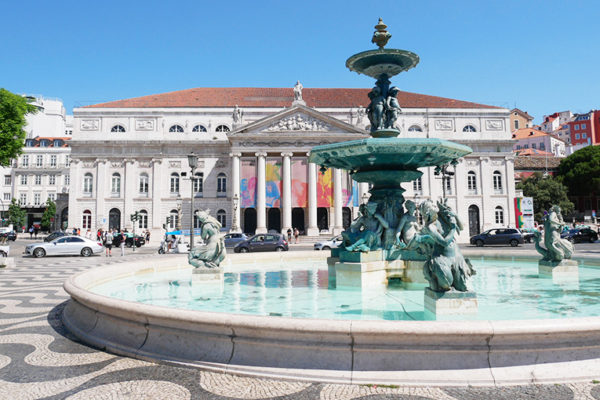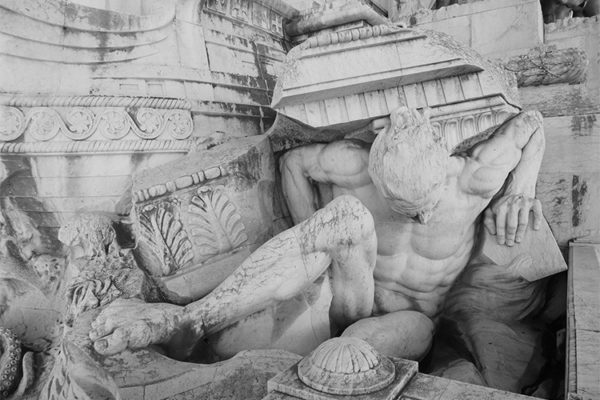We all have someone around us who comes from Portugal or who has Portuguese origins. But do you really know the history of Portuguese immigrants? I also had many questions. Born of Portuguese parents, this question particularly touches me because it represents a part of my history.
As part of his book, The Salazar dictatorship and emigration - The Portuguese State and its migrants in France (1957-1974)Victor Pereira, historian and academic, was kind enough to answer my questions.
Why have thousands of Portuguese people fled their country?
Since 1933, Portugal has been ruled by Antonio Salazar through theEstado Novo. The Portuguese leader, a fervent defender of mercantilism, exercised his power with an iron fist. From the 1950s onwards, thousands of Portuguese people fled to France in the hope of a better future. Most of them belonged to the working classes and were condemned by the social determinism imposed by the dictatorship. France remained the ideal destination to escape from the poverty praised by the Salazar regime.
There are several reasons for this emigration - for Victor Pereira "the fact that there are so many Portuguese who leave for France, and moreover, clandestinely, crossing Spain, crossing the Pyrenees, on foot with smugglers; it was because in Portugal, people did not always have enough to eat and lived badly. They wanted to go to France to have a better life for themselves and their children. Nevertheless, for some of them, emigration was the only way to avoid military service and the colonial war, which began in 1961. Compulsory for young men, this war, wanted by the government to keep the colonial empire, was suffered by the Portuguese population.
Finally, the question of the political motivation for emigration arises. "In fact, it is a question that is more difficult to decide than that. Often, we oppose economic immigration and political immigration. People who leave to survive, to earn a living, and people who leave because they are threatened with persecution or because they want to continue their political activities. And the borders between the two are much more difficult to draw," explains Victor Pereira. Indeed, Salazar is afraid that the Portuguese in France will become political because of the Communist Party and the trade unions. On the other hand, immigrants were not very active in France for fear of reprisals against them and their families back home. However, we can say that a minority of Portuguese men and women are in total disagreement with the regime without belonging to a political movement.
Europe's oldest right-wing dictatorship
A former professor of political economy at the University of Coimbra, Antonio de Oliveira Salazar entered politics in 1910. A fervent defender of rigorous conservatism and social determinism, he imposed an authoritarian regime in Portugal after coming to power in 1932. Rejecting modernity, anti-Americanism, and national withdrawal, Salazar's Portugal offered a precarious life to its population. A hard worker and a leader who concentrated power, he almost never left his country to which he was entirely devoted. Victor Pereira confirms that "for Antonio Salazar, the goal is to preserve society, and to change it as little as possible. Hence this defense of agriculture against modernity and industrialization. For example, Coca-Cola is not allowed in Portugal. The metaphors that are often used to talk about Salazar, is to talk about the stopped clock or even to stop time in order to keep the religious values. Social justice, as we understand it today, was not a concern for the dictator. For him, in society, there is a hierarchy. And hierarchies must be respected. So if you are born into a poor family, you have to accept it. There was an expression among the Salazarists: a place for everyone and everyone has his place". Moreover, repression was put in place by the PIDE (ex-PVDE), the state police that repressed those who opposed the regime.
Since strikes and demonstrations are forbidden and trade unions are controlled by the regime, the only way to escape this social injustice is to leave. The vast majority of Portuguese emigrants were peasants or agricultural workers who paid smugglers to go to France. Salazar used propaganda to dissuade his population from leaving and even went so far as to pass a decree in 1961, which made clandestine emigration a crime. That same year, the colonial wars began and the aim was to prevent young men from fleeing their military service.

The Portuguese Diaspora in France
Despite the hardships and the clandestinity, the Portuguese speak little of their history. They are often discreet and are known to be hard-working. Few people understand the existence of the Portuguese community in France or know how it arrived.
Thanks to archives and testimonies, we now know that many of the first Portuguese men and women arrived in France by smugglers, and gathered in shanty towns on the outskirts of large cities, mainly in the Paris region but also in the Auvergne and in northern France. According to Pereira: "For those who came before 1964, they had to pay the smugglers extremely high prices. They had to leave Portugal in hiding. They had to cross the Pyrenees, Spain, in trucks. And then on the way back from the Pyrenees they had to cross the Pyrenean passes on foot. And once they had crossed all that, for many of them they lived in shanty towns or in pavilions where there were dozens of people. And at the beginning, as they needed to regularize their situation, to have papers, they were obliged to accept jobs and to work a lot. They worked 10, 11 hours a day. They worked on weekends. To pay their debts and to try to save money. So for the first generation and the first to come, especially those from the 1960s, the conditions of travel and living in France were particularly difficult. "It is estimated that around 900,000 Portuguese emigrated between 1957 and 1974.
Today, according to several sources, the Portuguese diaspora (Portuguese citizens, naturalized citizens and descendants) represents several hundred thousand people in the world, including a little more than one million in France.
To find out more : The Salazar dictatorship and emigration - The Portuguese State and its migrants in France 1957-1974 from Victor Pereiraat SciencePo- Les Presses
written by : Monica Leite


